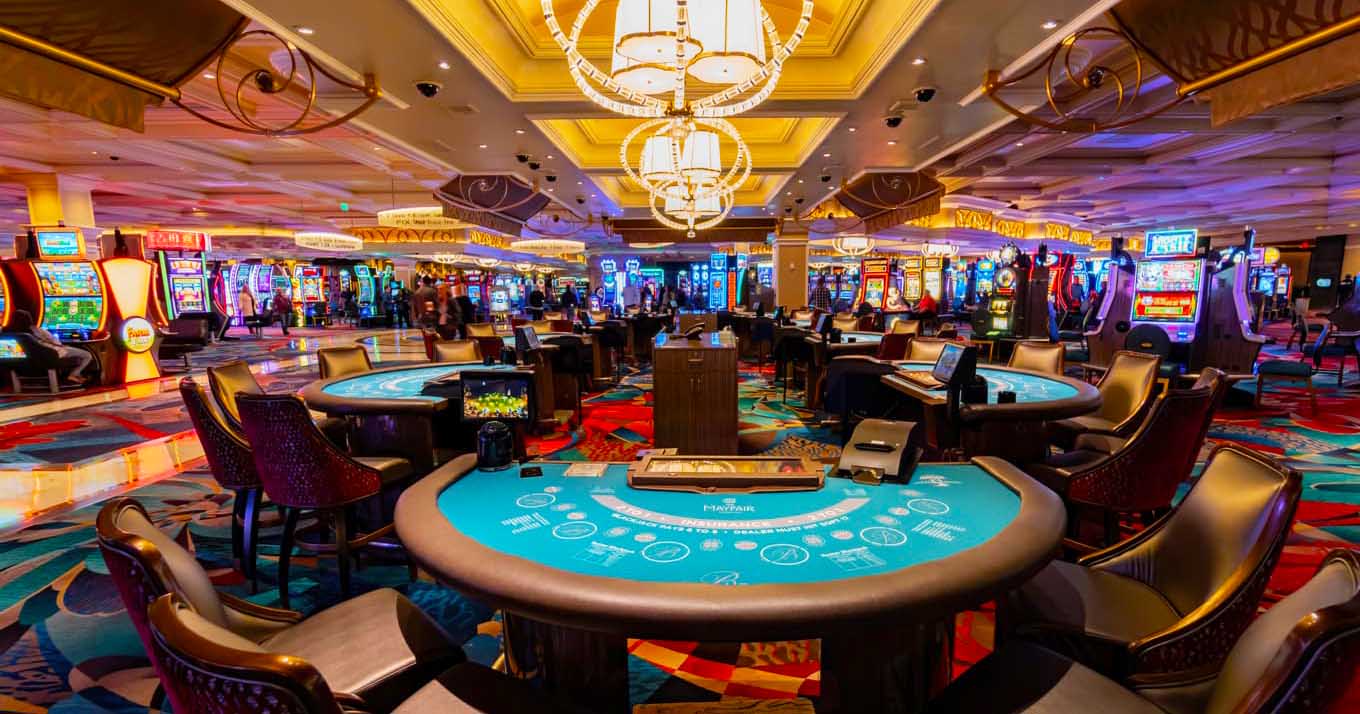
Casino games have long been a captivating source of amusement, drawing countless of players from varied cultures around the globe. From the opulent casinos of Vegas to the busy gambling halls of the Chinese gambling capital, these games serve as a link that brings together people across a variety of backgrounds. The allure of fortune, skill, and gambling entices not only those hoping to gamble for profit but also those looking for a feeling of belonging.
The influence of casino games extends well beyond the gaming floor. They often embody the social norms and principles of the communities in which they flourish. Games such as Texas hold ’em, blackjack, and the spinning wheel have embedded themselves into the tapestry of mainstream culture, influencing various aspects from cinema to fashion. As we explore this intriguing intersection of luck and society, we can better understand how gambling games shape and are influenced by the world around us.
Historical Development of Gambling Games
The roots of gaming games can be traced back to historical civilizations, where betting in various forms was extensively engaged in. In the East, around 2300 B.C., a type of lottery known as Keno was common, while in old Rome, soldiers would often bet on the outcomes of their matches. The idea of using randomness for entertainment and gain developed over the centuries, leading to the establishment of more structured activities. By the final Middle Ages, betting houses initiated to emerge in European nations, particularly in Italy, which introduced early forms of famous activities still enjoyed today.
As gambling expanded fame in the continent, the 17th and 18th centuries saw the appearance of gambling establishments as specialized establishments for betting. The earliest official gambling house, the Ridotto, was set up in Venice in 1638, featuring games like the game of Baccarat and the game Faro. This time marked a significant shifting point, as gaming venues started to draw not just the high society but also the expanding middle class. The refinement of activities grew, leading to the creation of new rules and variations that enhanced the play experience.
In the 19th century, the industrial age and changes in social standards also changed the landscape of gambling games. The introduction of roulette and contemporary one-armed bandits drew a more diverse clientele, and gambling establishments became seen as legitimate recreation. This time witnessed the globalization of casino activities, as gambling houses expanded from Europe to the Americas, culminating in the development of the legendary Strip of Las Vegas in the 20th century. The evolution of casino games has continued into the current era, incorporating technology and online services, allowing them available to a global market.
# Cultural Importance in Different Cultures
Gambling games have significant cultural and social significance within a multitude of cultures around the globe. In Las Vegas, the very core of the city is woven around casinos, where gaming is not just a recreational activity but a fundamental aspect of entertainment and social interaction. The bright lights and vibrant atmosphere attract a vast audience, showcasing how casino games can impact local financial landscapes and cultural uniqueness. This environment transforms the notion of relaxation into an enriching experience that shapes fashion, melodies, and even cinema.
On the other hand, some cultures approach gambling with more caution, viewing it through the lens of ethical considerations and tradition. 77win For instance, in many Asian communities, games like Mahjong and Pai Gow Poker are steeped in history and possess significant social meanings. These games are often played during get-togethers and occasions, fostering social ties and solidifying familial ties. The act of participating in these games goes beyond mere amusement, reflecting values such as deference to seniors and the value of collective enjoyment.
At the same time, in Western countries such as Monaco and Italy, casino games serve as symbols of wealth and refinement. The stylish atmosphere of these venues attracts both visitors and locals, reinforcing a sense of distinction and exclusivity. The art of poker and the strategic elements of games like the game of baccarat are esteemed, shaping interpersonal interactions and cultivating an appeal that fascinates a varied audience. This emphasizes how games of chance can simultaneously echo and shape societal views towards hazard, reward, and relationship building.
Financial Influence and Tourism
Gambling activities play a crucial role in the financial context of many areas, particularly those that depend significantly on visitor traffic. The revenue produced from casino operations fuels local financial systems, creating employment opportunities not only within the casinos themselves but also in related sectors such as hospitality, restaurant services, and entertainment. This surge of tourists, drawn by the allure of gambling and the overall gaming environment, stimulates spending across multiple businesses, contributing to the economic vitality of the region.
The presence of casinos often leads to the construction of infrastructure, including lodging, public transit, and recreational facilities. These developments are essential in enhancing the overall tourist experience, making destinations more appealing to visitors. Additionally, many casinos contribute in local communities through sponsorship of events and charitable activities, further embedding themselves into the community structure of the locality. Such contribution not only supports economic growth but also cultivates a positive reputation of the gambling sector.
Moreover, the global popularity of casino games drives tourism competition, with regions vying to attract players from across the globe. Iconic locations like Las Vegas and Macau have become identifiable with gambling culture, drawing millions each year. This competitive edge encourages innovation and variety within the gambling sector, influencing trends in entertainment and hospitality that extend beyond their borders. The ripple effects of this tourism extend far, impacting local economies and cultural exchanges on a global scale. game bài 77WIN
